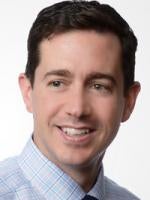Under two amendments to its law regulating consecutive hours of work for nurses (Labor Law Section 167), New York has established monetary penalties for violations of the law and placed reporting requirements and other restrictions on healthcare employers that require nurses to work beyond their regularly scheduled hours.
Section 167
Section 167 has been in effect for more than a decade. It restricts healthcare employers from requiring nurses to work beyond their scheduled work hours, except where there is:
-
A healthcare disaster that increases the need for healthcare personnel;
-
A federal, state, or county declaration of emergency;
-
An unforeseen emergency and necessity to provide safe patient care that could not be prudently planned for by the employer and does not regularly occur; or
-
An ongoing medical or surgical procedure in which the nurse is actively engaged and whose continued presence is needed to ensure the health and safety of the patient.
Under the law, “healthcare employers” include hospitals, nursing homes, diagnostic treatment centers, and certain state-operated facilities, while “nurses” include both registered nurses (RNs) and licensed practical nurses (LPNs).
While prohibiting employers from mandating extra work hours, Section 167 expressly provides that nurses may voluntarily work beyond their regular schedules.
December 2022 Amendment
A December 2022 amendment (Assembly Bill 286) to Section 167 established monetary penalties for violations of the Section, to be assessed by the New York State Department of Labor (NYSDOL).
Those penalties are $1,000 for a first violation, $2,000 for a second violation within 12 months, and $3,000 for subsequent violations within 12 months.
The December 2022 amendment also required the employer to pay the affected nurse(s) a 15 percent premium for the hours worked in excess of their scheduled hours.
Prior to mandating that nurses work beyond their scheduled hours, healthcare employers are required to make good faith efforts to pursue alternatives, including, but not limited to, calling per diem employees, agency nurses, and floaters, or requesting an additional day of work from off-duty employees.
March 2023 Amendment
A second amendment (Assembly Bill 970), enacted on March 3, 2023, requires a healthcare employer to self-report to the NYSDOL and the Department of Health when it mandates additional work hours under one of the exceptional circumstances, if that mandate exists for at least 15 days in a month.
In addition, a healthcare employer that requires additional work hours under one of the exceptions for at least 45 days in any consecutive three-month period must submit an explanation for its need to do so and must provide an estimate of when the circumstances requiring the extra work hours will end.
In what should be viewed as some relief for healthcare employers, the March 2023 amendment makes the monetary penalties established by the December 2022 amendment permissive, rather than mandatory, and eliminates the 15 percent premium payment to employees. However, the March 2023 amendment adds a civil penalty of not more than $500 for violation of the reporting requirements established by that amendment.
Finally, the March 2023 amendment establishes a complaint reporting procedure. NYSDOL is required to establish an enforcement officer to oversee the investigation of complaints. The enforcement officer may investigate, in consultation with the Department of Health, and must notify the employer of the complaint and related investigation.
The NYSDOL also must make a poster available on its website, informing employees of the complaint-filing process. Affected healthcare facilities must display the poster in a conspicuous location accessible to employees.
The reporting and revised penalty provisions go into effect June 28, 2023. The DOL may issue regulations to implement these new provisions.
Employers should consult with employment counsel to determine how their facilities may be affected by the new law and how to comply while addressing specific organizational needs effectively.





 />i
/>i

